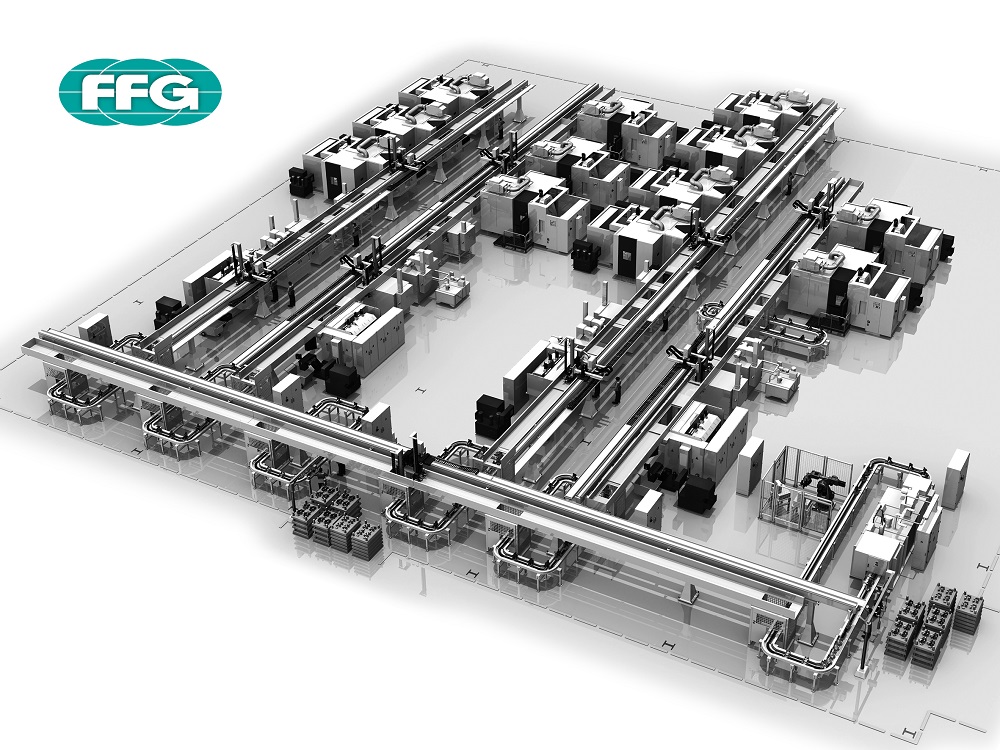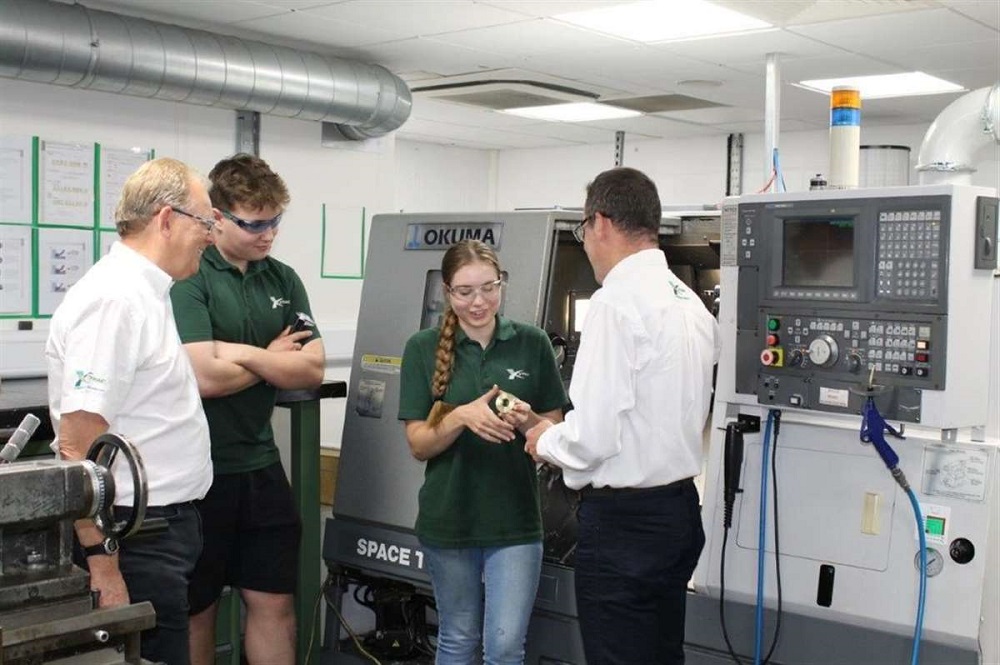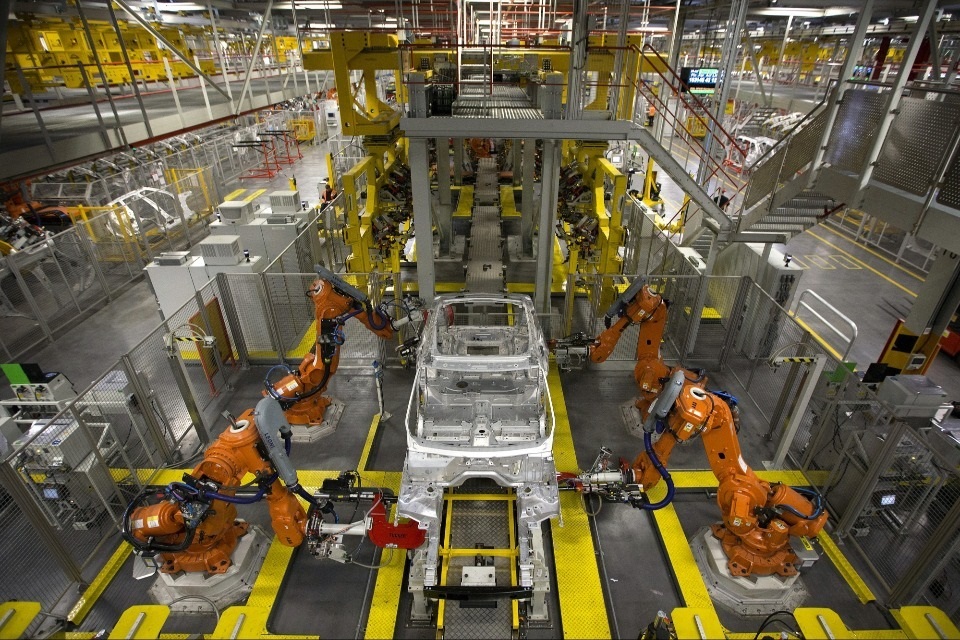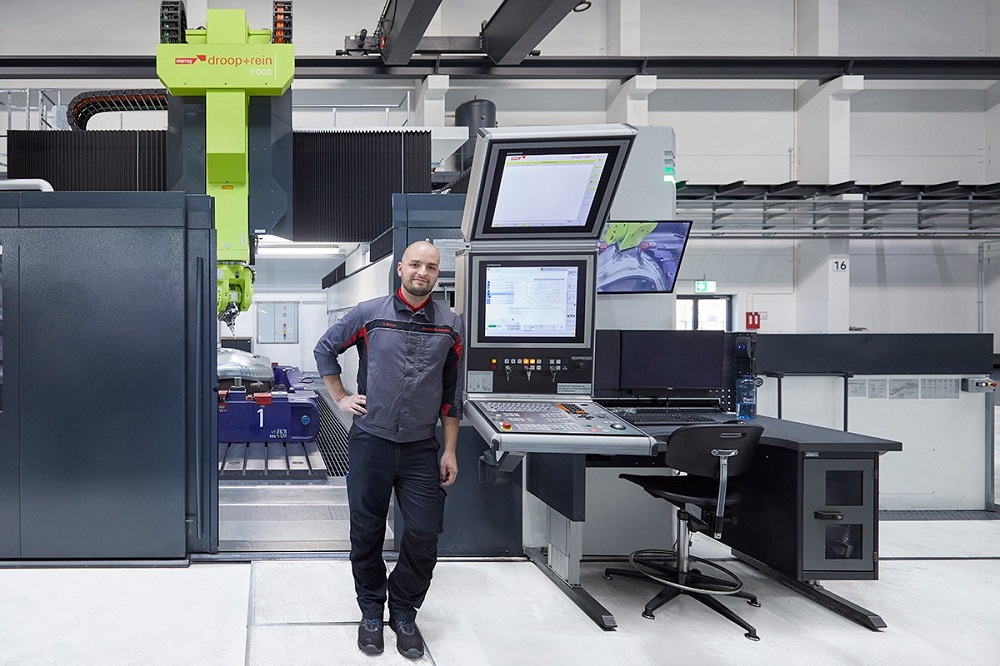Porsche Werkzeugbau GmbH in Schwarzenberg, Germany, has taken its mechanical machining to the highest technical level in recent years. Two large Starrag HSC machining centres of the Droop+Rein FOGS type play a major part in this achievement. The machines finish press tools for moulding the skin parts of vehicle bodies with the utmost precision, producing surfaces with grinding quality.
A premium car manufacturer should have a premium engineering plant. To ensure that the Porsche Werkzeugbau GmbH Schwarzenberg factory fulfils all of the preconditions for this ambition, the company invested €40mover the past five years to develop the toolengineering plant to the highest possible level. Among other things, the Schwarzenberg-based company used this money to set up two new production halls, purchase a new 25,000kN servo press for production-related tool try-outs, and invest in retrofitting and new machine tools – including two Starrag HSC centres of the Droop+Rein FOGS 35 68 N40C type.
Beforehand, the tool-engineering team analysed the entire process chain, from tool design, development, production and try-out, right through to transfer to the pressing plant. An important detail that came to light was the realisation that when it came to mechanical machining, there was potential for improvement in tool finishing, particularly in accuracy, speed and surface quality.
Marco Franz, head of mechanical production, points out some of the reasons: “For some years, we’ve been experiencing a shift towards lightweight construction and, as the Porsche competence centre for forming technology in the moulding skin area, we were commissioned to develop the tools required for the conversion to an aluminium body. During forming, aluminium sheets respond much more sensitively than steel, which created big challenges when it came to tool engineering. Our existing machines were not able to meet some of the requirements.”
Two new high-speed machining centres for finishing the pressing moulds should fulfil these new requirements regarding surface quality, accuracy and speed.According to Franz, they should also help to make the process more efficient and economical, as well as greatly improving quality.
The list of requirements contains fundamental preconditions such as process stability, availability and ease of maintenance, as well as characteristics that cannot undergo anycompromises, such as temperature stability. In addition, it was necessary to define future-oriented specifications for spindle performance data.
Head of tool and mould making Lutz Kramer says: “When you buy this kind of machine, you expect to use it for the next 10 to 20 years. During this time, several generations of new milling tools were developed that are more efficient and allow higher speeds. We must take all of this into account during the early tendering process.”
With their list of requirements, the Porsche Werkzeugbau decision-makers set a high bar and came to realise that few manufacturers would be able to meet the requested standards.
“During the technical discussions that we held with many different providers, we were soon able to tell who was able and willing to overcome the challenges,” says Kramer.“Some machine providers withdrew at an early stage, while others were later unable to offer any acceptable solutions.”
Ultimately, the decision-makers opted for two Starrag Droop+Rein FOGS 35 68 N40C high-speed machining centres. These five-axis machine tools for finishing processes have an overhead gantry and offer traverse paths of 6.8 x 3.5 x 1.5m in the X, Y and Zaxis, respectively. The equipment includes a tool magazine with a total of 100 places that can accommodate HSK32, HSK63 and SK50 retainers, as well as an eccentric fork head with a 40kW/700Nm milling spindle and three different motor milling spindles with speeds of 18,000, 40,000 and 65,000rpm. In addition, for one of the two machines, Franz ordered a special 6000rpm angular head for machining areas that are difficult to access.
“With this range of spindles, the requirements of the coming years are covered,”states Kramer.
There were other reasons for choosing the Starrag machines, besides the technical data, as Kramer adds: “We didn’t just want to buy a machine; we wanted a solution for our tool manufacturing process. That’s one of the main reasons why Starrag seemed to be the right partner. With the Droop+Rein specialists, we had the impression right from the start that they were listening to us. They wanted to understand us and the thinking behind our processes, and wanted to use their expertise to help us.”
Once the machines arrived, the two companies began fine-tuning the workflow together, taking into account the characteristics of CAM, the control system and the machine. This task was necessary because achieving the best surface quality requires a high level of path accuracy, even at high feed rates. Here, it was important to highlight the interfaces between CAM and NC, and work with experts from the control system manufacturer to adjust functionalities in line with process requirements.
This interdisciplinary approach, alongside the combination of sophisticated drive optimisation in conjunction with the proven machine technology of the FOGS series,proved extremely successful. The result was not only a ‘class-A’ surface but also a high level of accuracy – at path speeds up to 16m/min on the freeform surface. The processes have been running stably ever since.
“It took a long time to achieve stable processes, especially when it came to the forming tools for aluminium parts because there are many influencing factors,” says Kramer. “However, Starrag assisted us until we were sure we had reached our goal.”
Franz adds: “I wouldn’t have believed it at the start, but Starrag was able to implement more than 90% of our wish list, making it a good decision to invest in the new Droop+Rein FOGS machines. We are now faster and more precise. We also achieveoutstanding surface accuracy, depending on the component and its geometry.”
Kramer agrees, stating: “We are proud of what we achieved with Starrag. With the Droop+Rein FOGS machines, we attained the desired improvement in quality and were also able to reduce the manual benchwork of our toolmakers by roughly 20% in the follow-up process. These are strengths that make us one of the top teams in the ‘Champions League’ of largetool-engineering plants.”
More information www.starrag.com



















